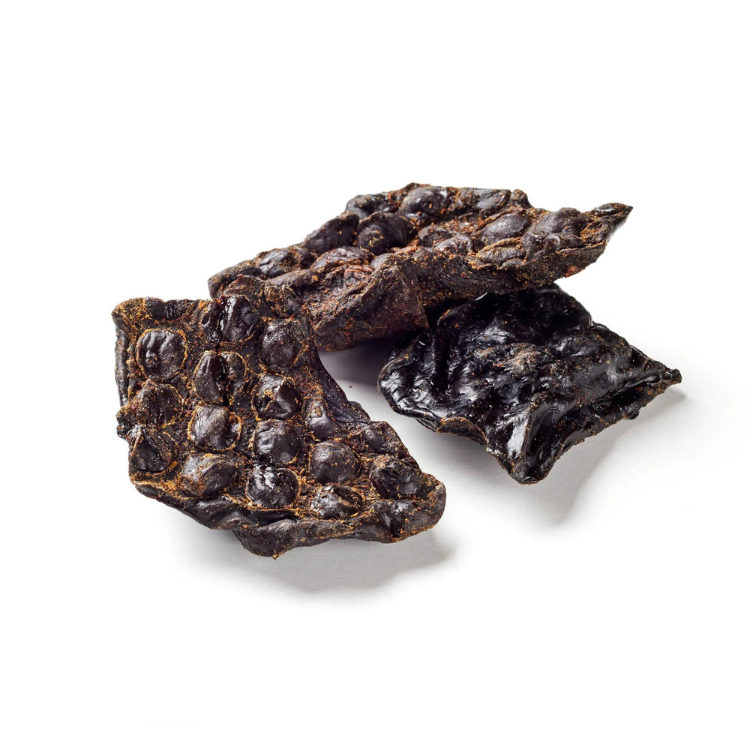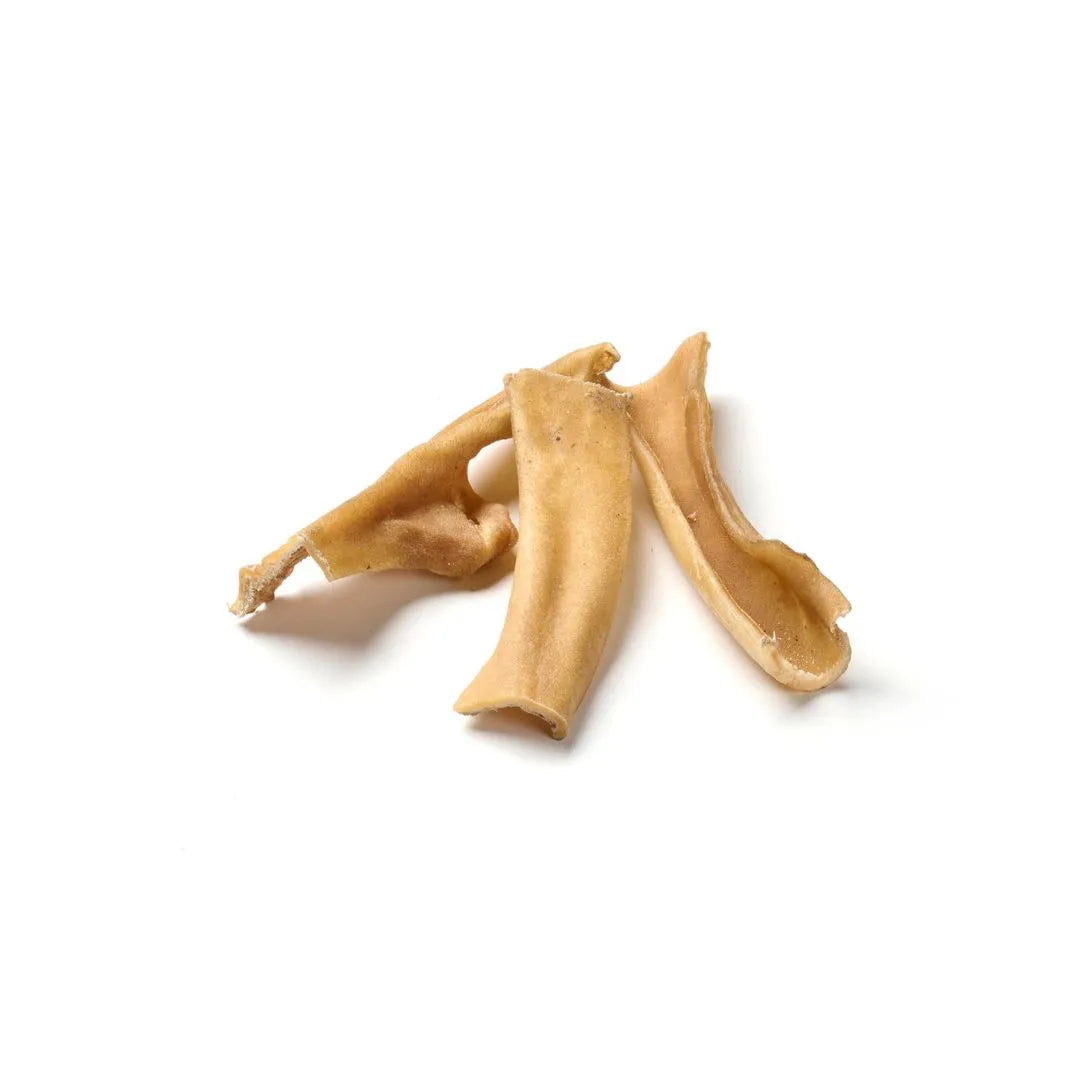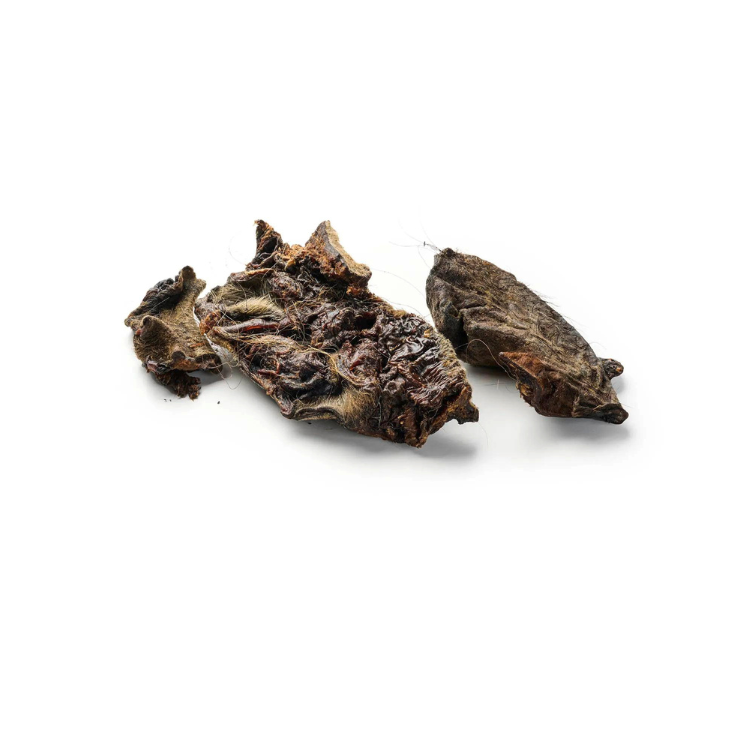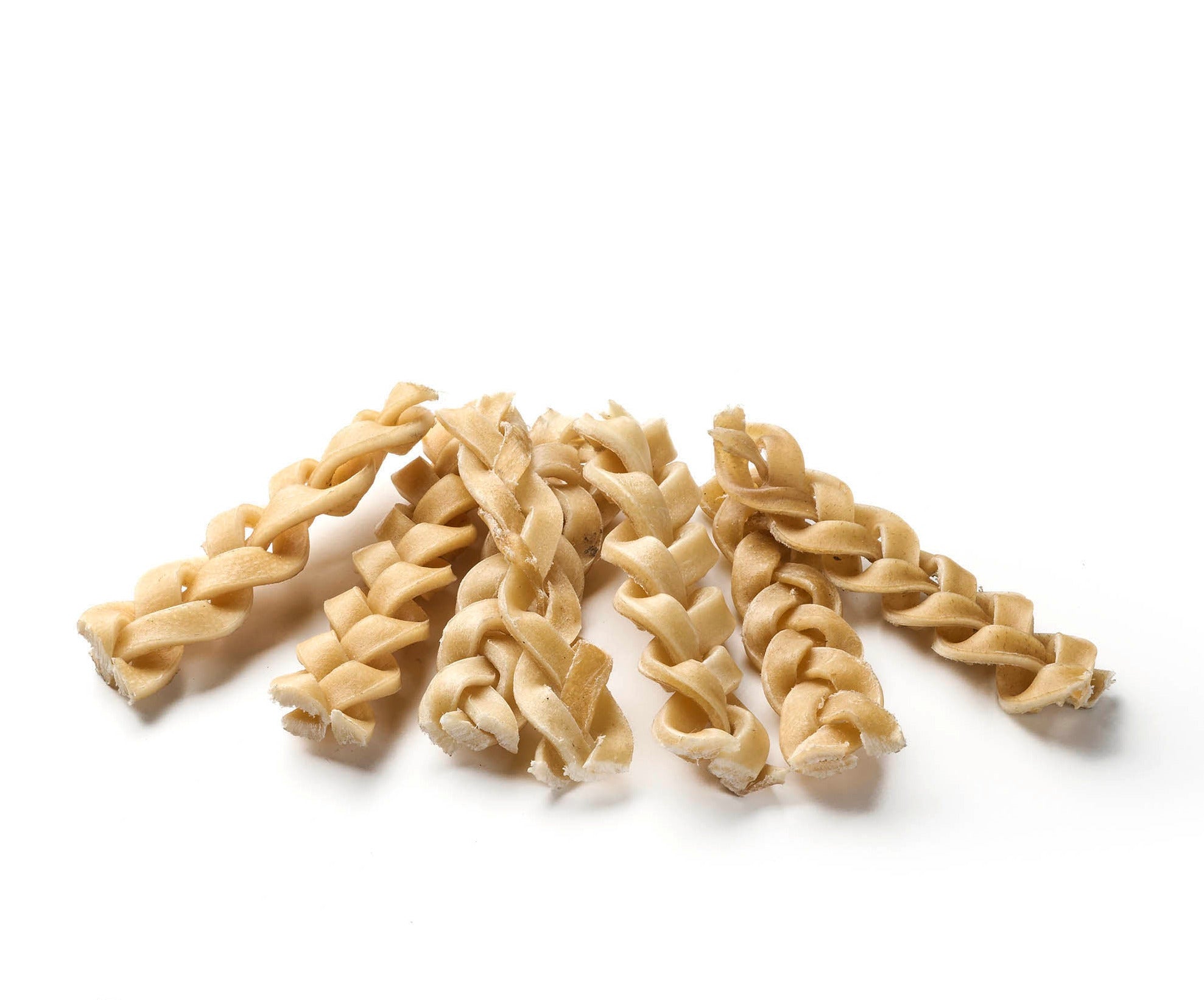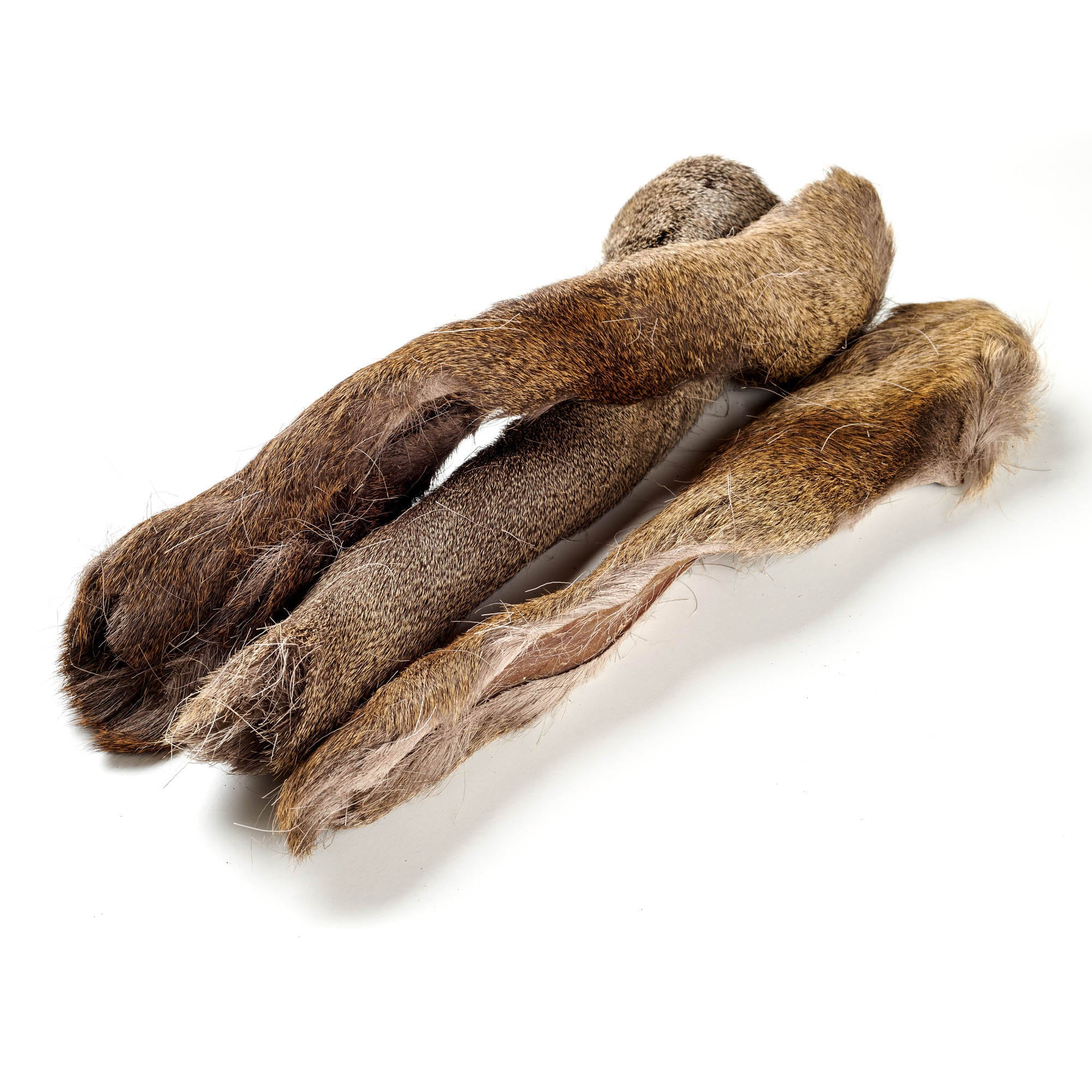
Beef for dogs
Share
Do you want the best for your dog and are wondering whether adding beef to his food is really the best option? Beef may seem like the gold standard of dog nutrition at first glance, but a closer look raises some questions. In this article, we take a critical look at beef as a primary ingredient in dog food, examining not only the nutritional aspects, but also environmental issues and the potential for allergic reactions.
While beef is a rich source of protein that provides essential amino acids, vitamins and minerals, the production of beef also involves a significant environmental impact. From high water demands to significant methane emissions to land use, cattle farming poses a challenge to our ecosystems. At a time when sustainability is becoming increasingly important, it is crucial to also consider the ecological footprint of our pets.
It is also known that some dogs can have an allergic reaction to beef. Symptoms such as itching, skin rashes or digestive problems can be signs of such intolerance. This forces us to think about alternatives that take into account both our dog's health and that of the planet.
Contents: Beef for dogs
- The cattle: history, meaning and environmental impact
- Benefits of Beef for Dogs
- The Disadvantages of Beef for Dogs
- Can beef be replaced with other proteins?
- Different Ways to Feed Beef to Dogs
- Beef chews
- Conclusion
Treat your dog to something special with our chew products!
The cattle: history, meaning and environmental influence
Cattle have played a central role in human civilization for thousands of years. Historically, cattle were initially used as draft and pack animals before becoming an important source of milk, meat and leather. Their domestication marked a turning point in the development of agricultural societies and significantly influenced the way people settled down and formed communities.
Cattle ranching has shaped not only the agricultural landscape, but also profound cultural and symbolic meanings in various societies around the globe. In some cultures, cattle are considered sacred and are closely linked to religious rituals and traditions. Their versatility and contribution to human nutrition and the economy can hardly be overestimated.
However, modern cattle farming also poses significant environmental challenges. Beef production is resource intensive and has a high water footprint. Cattle are also significant producers of methane, a greenhouse gas that contributes to global warming. The expansion of cattle grazing areas is also a major factor in deforestation in many parts of the world, particularly in the Amazon region. These environmental impacts raise questions about the sustainability of cattle farming and call for the search for more environmentally friendly methods of meat production and alternative protein sources.
Today we face the challenge of balancing the traditional role of beef in our diet and economy with the urgent needs of environmental protection and sustainability. Developing and promoting sustainable farming practices, reducing meat consumption and exploring alternative protein sources are critical steps to minimize the negative impact of cattle farming on our planet.
Delicious dog snacks for pure enjoyment are available from us!
Benefits of Beef for Dogs
Beef can still be an enriching addition to your dog's diet and stands out in some ways compared to other meats. It is an excellent source of protein, essential for building tissue and developing strong muscles, similar to chicken , but unlike chicken, offers a higher content of certain essential amino acids.
Compared to chicken or turkey , which are also popular sources of protein in dog nutrition, beef stands out for its richness in important vitamins and minerals. For example, it contains more vitamin B12, iron, zinc and selenium. These nutrients are crucial for strengthening the immune system and contributing to the dog's overall health. While fish is a good source of omega-3 fatty acids, beef offers an optimal fat composition with healthy fats that serve as an important source of energy and protect cells from damage.
Another advantage of beef over other meats such as lamb or game is its general digestibility and the taste, which is particularly popular with many dogs. While lamb and venison can also provide high-quality proteins and fats, they are sometimes less available and may be more likely to cause allergic reactions in some dogs.
In summary, beef offers a unique combination of high-quality protein, essential amino acids, vitamins and minerals, making it a valuable addition to many dogs' diets. Its popularity and digestibility make it a preferred choice over other meats, although it is important to consider each dog's individual needs and possible intolerances.
The Disadvantages of Beef for Dogs
Although beef offers many nutritional benefits for dogs , there are also some disadvantages that dog owners should consider. One of the main disadvantages is the potential for allergic reactions in dogs . Beef is one of the more common causes of food allergies in dogs, which can result in skin problems, digestive disorders and other health problems.
Another issue is the environmental impact associated with beef production. As previously mentioned, cattle farming has a significant impact on the planet, including high greenhouse gas emissions and a large water footprint. Dog owners who value sustainability may therefore have concerns about choosing beef as a regular part of their dog's diet.
Additionally, the quality of beef can vary greatly depending on factors such as how the animals are raised and fed. Factory farmed beef can contain residues of antibiotics and hormones that can be potentially harmful to the dog's health. It is important that dog owners pay attention to the origin of the meat and, if possible, choose products from sustainable and responsible animal husbandry.
Can beef be replaced with other proteins?
Of course, it is possible to replace beef with other protein sources in your dog's diet, especially if you are looking for a variation or your dog has specific needs that beef cannot meet. The variety of protein sources available makes it possible to create a balanced and nutritious diet that promotes both your dog's health and well-being.
- Buffalo Meat: Buffalo is an excellent source of protein for dogs, low in fat and often suitable as a hypoallergenic alternative to traditional beef. It is rich in important minerals and vitamins, especially B vitamins, which promote muscle health and overall well-being. Buffalo meat can be fed fresh, dried, or as part of high-quality dog food to provide variety and nutritional richness in the dog's diet.
- Camel Meat: Camel is low in fat and high in protein, ideal for dogs that require a low-fat diet. Rich in iron and vitamin B12, it supports overall health and is good for dogs with allergies to more common meats. Camel meat offers a mild flavor that is well received by dogs and can be used raw, cooked, or as part of food.
- Chicken and Turkey: These types of poultry are popular with many dogs and provide an easily digestible source of protein. They are particularly suitable for dogs with sensitive stomachs or those prone to allergies. Chicken and turkey are also rich in essential amino acids and can be offered in various forms such as cooked, raw (as part of a BARF diet) or as part of dry and wet food.
- Lamb: Lamb is another excellent source of protein that is rich in iron and zinc. It can be a good alternative for dogs that are allergic to more commonly used proteins such as beef or chicken. Lamb also offers a unique taste that is appreciated by many dogs.
- Fish: In addition to being an excellent source of protein, fish also provides important omega-3 fatty acids, which contribute to skin and coat health. Fish, especially fatty varieties like salmon, is also good for heart health and can be part of a balanced diet. However, it is important to pay attention to the quality and origin of the fish and to ensure that it is free of pollutants such as heavy metals.
- Vegetable proteins: Vegetable proteins are an alternative for dogs that do not tolerate meat well or for owners who prefer a more plant-based diet for ethical reasons. Pea protein is a popular choice because it has a good amino acid balance. Other plant-based protein sources include lentils, chickpeas and special vegan dog food formulations.
When choosing alternative protein sources, it's important to consider your dog's individual needs and preferences. Consulting with a veterinarian or nutritionist can help determine the optimal diet for your dog to support his health and well-being.
Different Ways to Feed Beef to Dogs
Even though beef has some negative points for dogs, it still remains a high-quality source of protein for your dog. The way beef is incorporated into your four-legged friend's diet can make a big difference in terms of health, tolerability and environmental impact. Here are some options for how your dog can benefit from beef:
- Wet Food: One of the most common ways to feed beef is through wet food. Not only is it tasty and can support your dog's water balance, but it often also contains a balanced mix of meat, vitamins and minerals. Many manufacturers offer wet food with a high beef content that is tailored to the needs of different dogs.
- Dry food: Dry food with beef as the main source of protein is also common. It offers a practical and often cost-effective way to provide your dog with a complete diet. Chewing dry food can also help promote dental hygiene.
- Barfing: Barfing , i.e. feeding raw meat, is becoming increasingly popular. This method allows you to customize your dog's diet and feed fresh, raw beef along with bones, organs and vegetables. However, barfing requires careful planning and knowledge of your dog's nutritional needs to avoid nutritional deficiencies.
- Frozen food: A variant of barfing is feeding frozen food , in which raw meat is offered frozen. This can be a convenient option to get the benefits of raw meat without having to prepare fresh meat every day. Frozen food is usually portioned and must be thawed before feeding.
Regardless of the feeding method, it is important to pay attention to the quality of the beef and to choose products that are free of additives and produced as sustainably as possible. For some dog lovers, only organic beef goes into their food bowl.
Although beef is an excellent source of protein, your dog's diet should be varied and include other sources of protein as well as vegetables and fruits to ensure a balanced diet. Ultimately, the best choice depends on your dog’s individual needs, health, and preferences.
Beef chews
Including beef as part of your dog's diet can be an excellent decision, despite some concerns. A particularly useful way to reap the benefits of beef is through chews . These snacks are not only a treat for your dog, but also support his health and well-being in many ways.
Beef chews come in many different shapes, so there is something for every dog, whether young or old. They are known to clean dogs' teeth and prevent tartar buildup by encouraging natural chewing behavior.
In addition to their dental benefits, these chews are also rich in protein and provide important nutrients that are good for your dog. Chewing itself can help your dog reduce stress and provide meaningful activity that keeps him mentally occupied.
Incidentally, beef chews are often made from meat processing by-products, which allows for efficient use of these valuable resources. This offers a useful way to recycle materials that would otherwise go to waste, while also helping to reduce waste.
By offering your dog chews made from beef, you are not only offering him a tasty reward, but you are also actively promoting his health. The choice should be based on your dog’s personal preferences and needs.
Conclusion
Beef is undoubtedly considered an outstanding source of protein for dogs and contains a variety of health benefits. But its effectiveness depends heavily on the quality of the meat and the individual needs of your loyal companion. It is paramount to consider not only the origin and freshness of the beef, but also to understand how it affects your dog's health and well-being. Proper portioning, a balanced diet and, if necessary, advice from a veterinarian can help you make the most of the benefits of beef and provide your dog with a healthy and balanced diet.
High-quality dog chews for your faithful companion can be found here!

